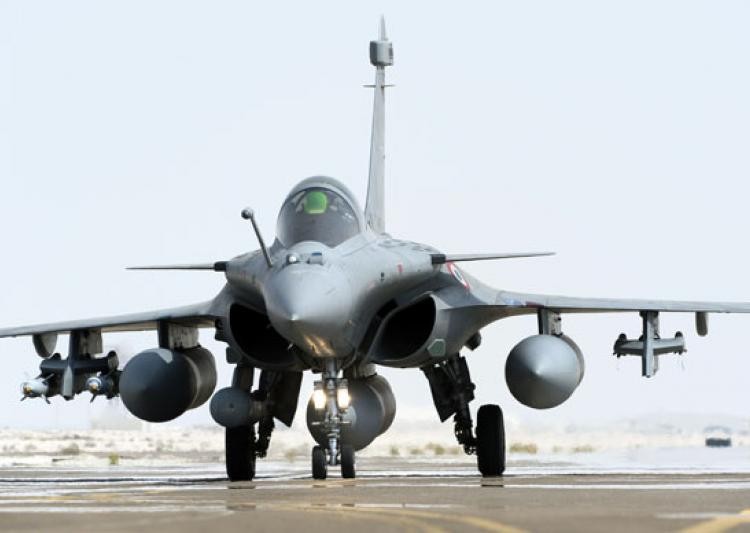
In light of the controversy erupting after a report on The Hindu revealed that the defence ministry had opposed the involvement of the Prime Minister's Office in negotiating the Rafale deal with France, then defence secretary G Mohan Kumar said on Friday that the ministry had only issued a dissent note over the sovereign guarantee aspect of the negotiations.
Speaking to ANI, Kumar sought to clarify that the dissent had nothing to do with the pricing issue of the fighter jets.
Kumar, who was the Defence Secretary from 2015 to 2017, spoke shortly after Congress chief Rahul Gandhi cited the media report to contend that PMO and defence ministry were not on the same page on Rafale negotiations. Shortly after Rahul's press conference, ANI released a "full" version of the dissent note which contains then defence minister Manohar Parrikar's acknowledgement that the PMO had been overseeing the negotiations with its French counterpart.
Kumar, who is one of the signatories of the letter, said the "context" of the dissent note finds mention in the newspaper report. "Whatever has been brought out (in the newspaper), it has nothing to do with pricing. Negotiations are not just for pricing but other things also. It was about sovereign guarantees and general terms and conditions,” he elaborated.
What is a sovereign guarantee?
In the domestic context, a sovereign guarantee is a promise by the Central government to discharge the liability of a third person in case of default. It is usually extended to improve the viability of projects with social and economic benefits, undertaken by government or non-government entities under public private partnerships.
The assurance enables public sector companies to raise resources at lower interest rates and also to fulfil requirements where such a guarantee is a precondition.
What role does the guarantee play in the Rafale deal?
In a deal between two governments, an assurance is sought which will ensure that the service or product purchased functions in good condition.
Key in the Rafale deal was the France government's refusal to provide a direct sovereign guarantee for execution of the Rs 59,000-crore deal for 36 Rafale fighter jets. This indicated that the French government was refusing to take direct responsibility of the products promised at the end of the contract.
However, the absence of an agreement did not stop the government from going ahead with the deal in September 2016. In the absence of the guarantee, the French government provided a "letter of comfort" to back the acquisition by India.
The fact that the deal was allowed to go ahead without a sovereign guarantee came to the fore during the Supreme Court hearings on the agreement, reported Times of India. A defence ministry official was quoted by the newspaper as having said, "There is no phrase called "sovereign guarantee" in several government-to-government contracts India has signed with countries like Russia and the US over the years. There are instead quality, price and other assurances, including performance and warranty bonds, that are built into them."
Why did Kumar bring focus back to the sovereign agreement?
Kumar brought it up ostensibly to remove focus from the contentious pricing of the jets. Rahul has been alleging that the pricing of the fighter planes, procured from French company Dassault, was changed at the behest of Prime Minister Narendra Modi.
To this end, Rahul has led several onslaughts against the prime minister, popularising the phrase "chowkidar chor hai". In asserting that the cause behind the defence ministry's 2015-2016 dissent was not pricing but an issue that the Supreme Court and Indian citizens were already aware of, the former Defence Secretary may have been aiming for less controversy surrounding the paperwork than the government is currently embroiled in.


.jpeg)

